DUBAI: Benjamin Netanyahu, the former Israeli prime minister, has sounded the alarm about a nuclear-armed Iran pursuing aggression against Israel, the Gulf states and “everybody else with impunity” if the proposed new nuclear deal materializes.
He described the idea of Iran having a nuclear umbrella as “very, very dangerous,” in addition to the possibility that the Iranians “may actually use (nuclear weapons) for the first time since the Second World War.”
Netanyahu’s warning came in an interview with Al Arabiya TV station on Wednesday amid reports that the US and Iran are closing in on an agreement to restore the 2015 accord after almost 17 months of indirect negotiations in Vienna.
“Well, I’m afraid it looks like it’s a done deal. And it’s a very, very bad deal,” Netanyahu told Al Arabiya. “Bad for Israel, bad for the Gulf States, bad for the Middle East, bad for the world. Because Iran is getting a highway paved with gold to a nuclear arsenal and they make no secret of their attempts to destroy us. Conquer the Middle East.
“I think this is a grave development. It’s a bad mistake. Iran is getting basically the ability to have 3,500 advanced centrifuges 10 times to 20 times more advanced than the few thousand that they have today. And they can begin developing them within two years.”
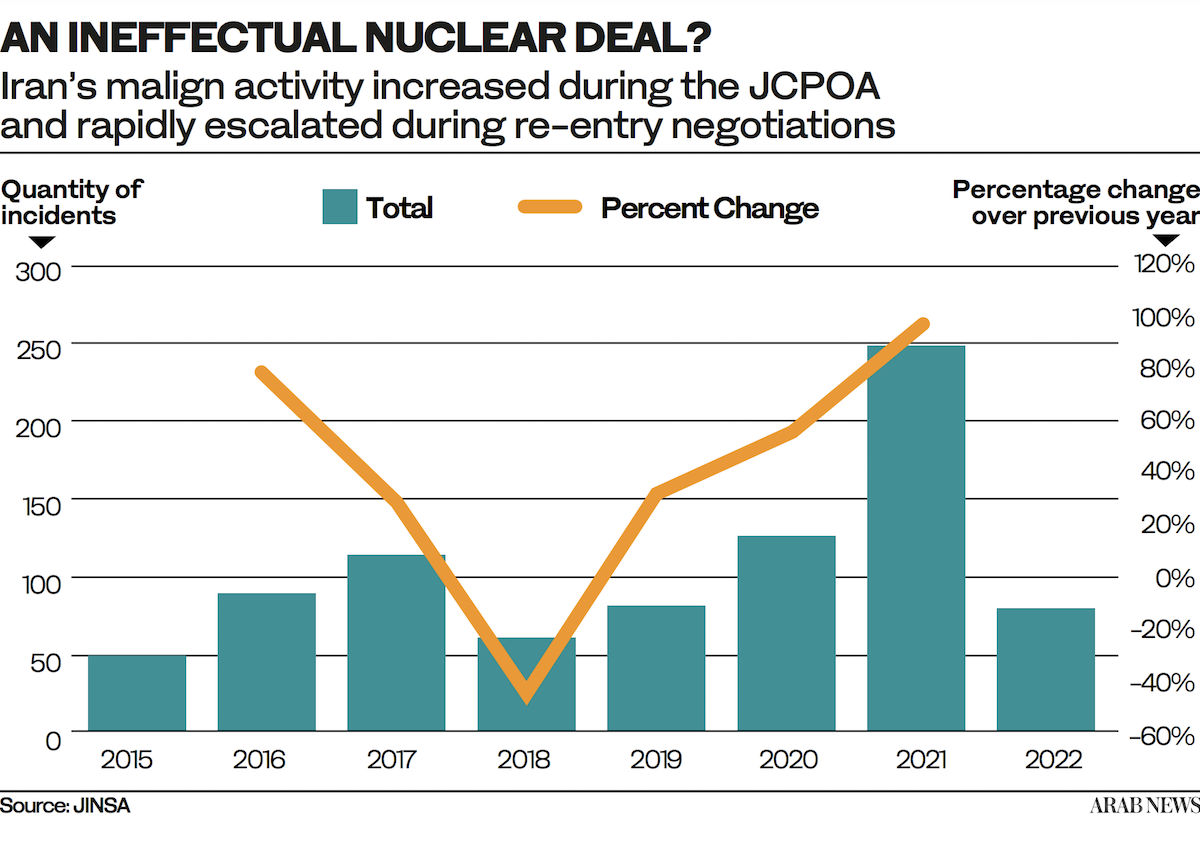
US officials have expressed optimism about the latest efforts to revive the Joint Comprehensive Plan of Action (JCPOA), which the US under President Donald Trump left in 2018 and which Iran has increasingly violated since 2019.
As of the last public count by the International Atomic Energy Agency, Iran had a stockpile of some 3,800 kg of enriched uranium. More worrying for nonproliferation experts, Iran now enriches uranium up to 60 percent purity — a level it had not reached before. That is a short, technical step away from weapons-grade levels of 90 percent.
According to US media reports, the Biden administration has relayed its response to Iran’s comments on the draft proposal to restore the deal, more than a week after Iran sent its response to what the EU’s top diplomat Josep Borrell called “a final text.”
“They’re getting hundreds of billions of dollars by the end of the deal within less than a decade for their terror and aggression,” Netanyahu said, adding that the “most dangerous terrorist regime on Earth” is being “given a prize, both in weapons of mass death and enormous money, to pursue its aggression.”
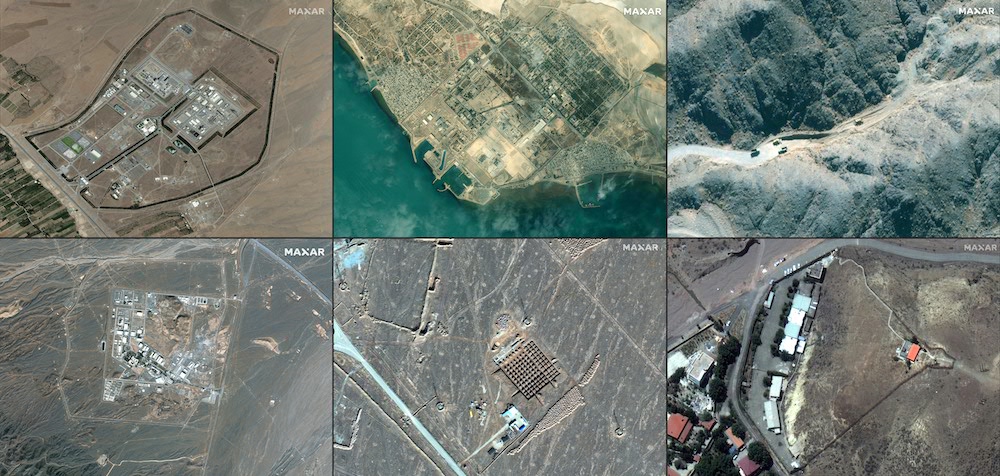
The European Union said on August 16, 2022 that it was studying Iran's response to a "final" draft agreement on reviving a 2015 nuclear accord with major powers it presented at talks in Vienna. (AFP/Satellite image ©2021 Maxar Technologies)
He continued: “There are no real inspections. They don’t have to stop the missile program. They don’t have to get into showing that they’re neutralizing the weapons program. In other words, they’re getting everything. They are not asked to change their behavior, sponsoring terrorism throughout the Middle East, throughout the world. They’re asked to do nothing, and they get everything. This is a bad deal.”
Netanyahu is among several current and former Israeli government officials who have criticized the emerging nuclear agreement. On Wednesday, Yair Lapid, Israel’s prime minister, called on US President Joe Biden to call off the deal, saying: “The countries of the West draw a red line, the Iranians ignore it, and the red line moves.”
He said the proposed deal “does not meet the standards set by Biden himself: Preventing Iran from becoming a nuclear state,” while warning that the frozen funds Iran would receive as part of a restored deal — worth an estimated $100 billion — would enable the regime in Tehran to fund even more malign activities in the Middle East.
Naftali Bennett, another former prime minister, urged the Biden administration not to sign the deal, “even now at this last minute.” He claimed the agreement, if adopted, would send “approximately a quarter of a trillion dollars to the Iranian terror administration’s pocket and to its regional proxies.”
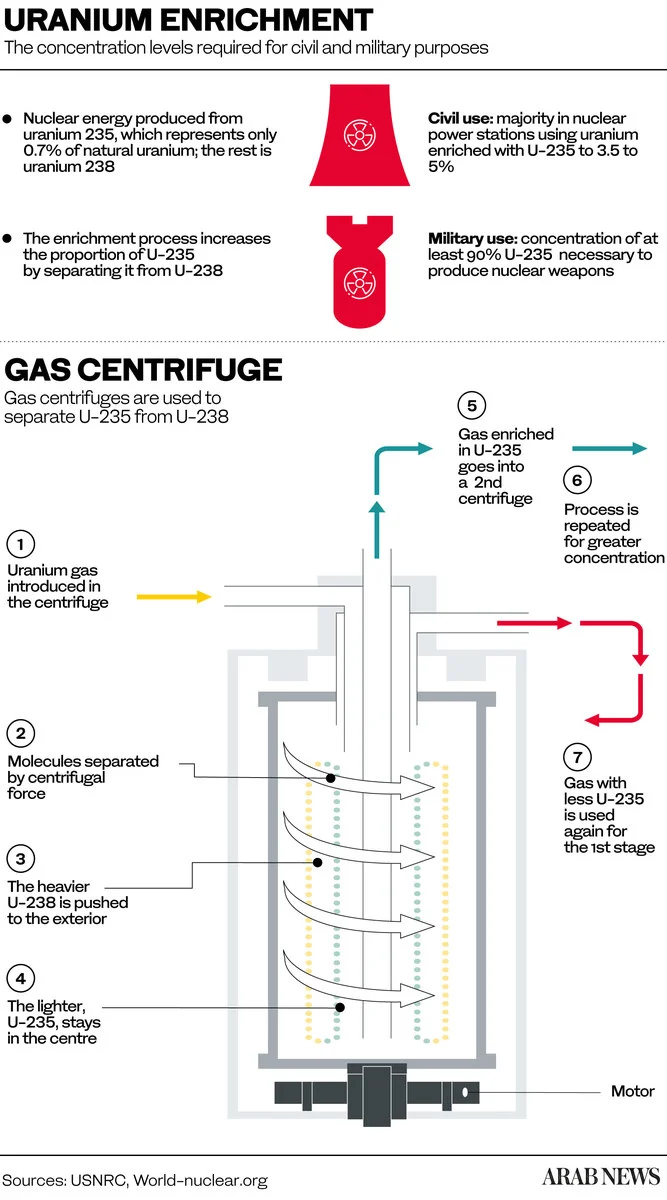
In his interview with Al Arabiya, Netanyahu alluded to the clandestine Israeli intelligence operation that saw a huge trove of nuclear files spirited out of a secret Tehran warehouse in early 2018, an incident confirmed by Iran’s Hassan Rouhani during the final days of his presidency in 2021.
“When we brought this Iran secret atomic archive to Israel, we found that as early as two decades ago, 2003, almost 20 years ago, Iran was already working on having five nuclear weapons. Of the kind that destroyed Hiroshima. Five. That’s what they were trying to do 20 years ago,” he said.
Brushing off the oral fatwa issued by Iran’s Supreme Leader Ayatollah Ali Khamenei in October 2003 forbidding the production and use of any form of weapon of mass destruction, Netanyahu said: “They can issue 100 fatwas. It’s all a lie. They lie through their teeth there.
“They want and are preparing to develop nuclear weapons. And the United States, in their heart of hearts and maybe even up in their minds, know that they are not in the business of preventing Iran from getting nuclear weapons. They are in the business of containing Iran once it has nuclear weapons.”
But could a country as important as the US make such a big mistake? “Unfortunately, it’s happened in the past,” Netanyahu said.
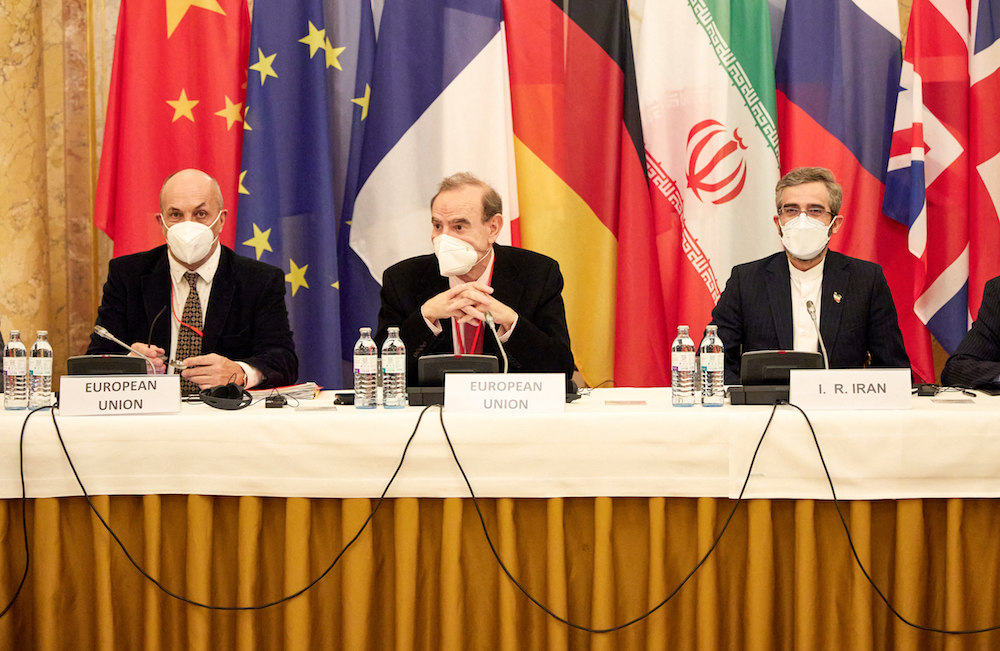
Deputy Secretary General of the European External Action Service (EEAS) Enrique Mora (C) and Iran's chief nuclear negotiator Ali Bagheri Kani (R) attending a meeting of the joint commission on negotiations aimed at reviving the Iran nuclear deal in Vienna, Austria. (AFP/File Photo)
“It took a while to get them out of that dangerous deal. President Obama said in a moment of candor in a public television interview in the US, he said by 2027, with the deal that he had signed, that Iran would be close to zero time to break out two nuclear bombs.
“That’s five years away. Now they’re giving them the means to do that. That’s just doesn’t make sense. If anyone thinks that because Iran signed a piece of paper that this will not happen, I’ll tell you two things. One, they lie, they cheat. But even if they don’t lie, even if they keep to the deal, this deal is so dangerous because it says to them, go ahead.”
Slamming the Biden administration for going “back to an even more dangerous deal,” he said: “It may be penny-wise and pound-foolish. Maybe they think there is short-term gain. But to have this dangerous regime have ICBMs (Inter Continental Ballistic Missiles) — which Iran is working on with nuclear-tipped warheads that can reach any American city — is the height of folly.
“This is not only bad for our countries, it’s bad for America.”
Since President Biden took office in January 2021 and ordered the resumption of negotiations with Iran in April, differences between the US and Israel have come into the open.
Underscoring the gap in their positions during the interview, Netanyahu said: “Even though the US is an indispensable ally, our most important ally, it is making a mistake. It doesn’t bind us. We are not going to subject our future and our existence to a mistaken policy.”
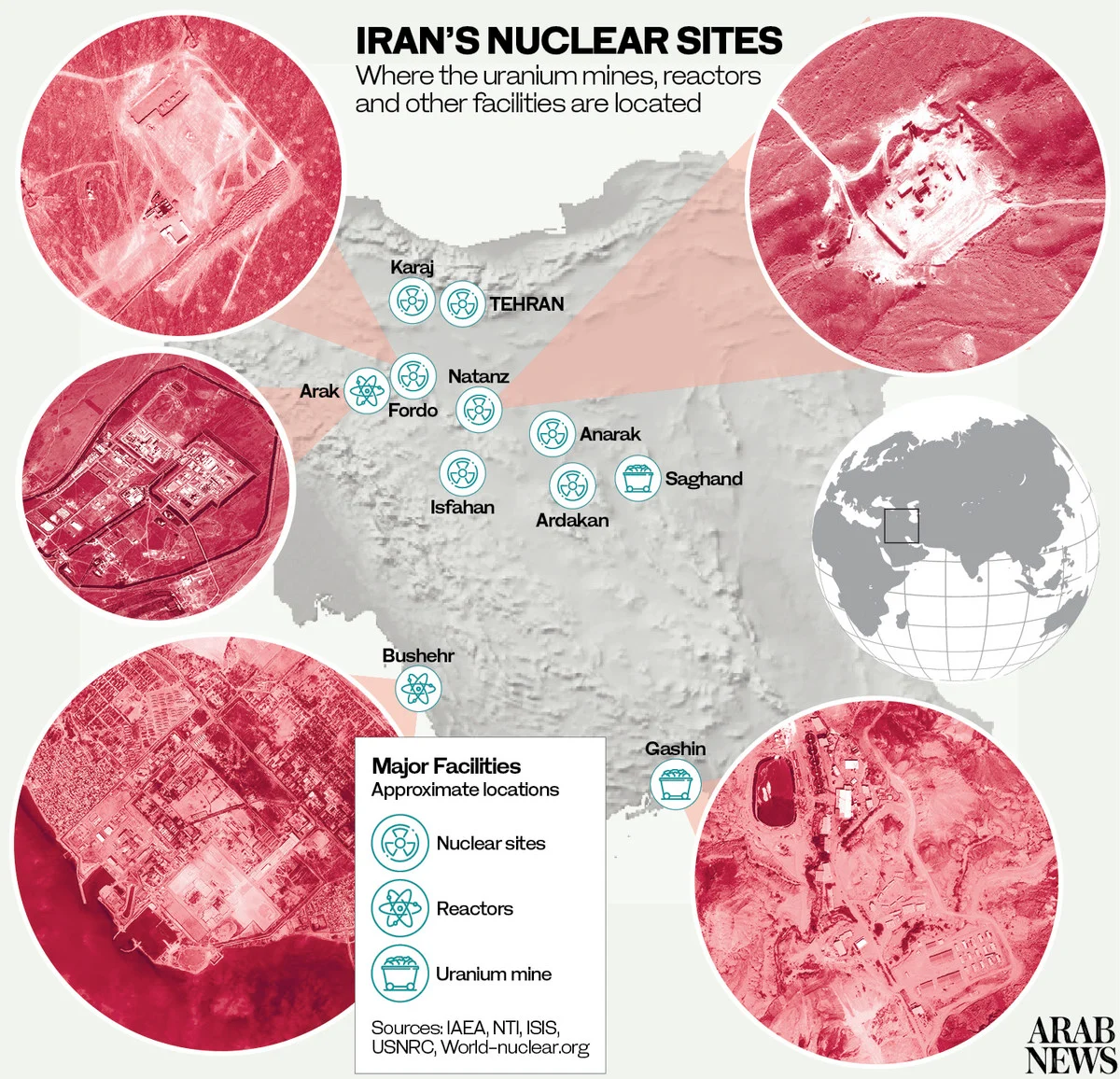
Referring to the Trump administration’s decision to withdraw from the JCPOA and other actions, Netanyahu said: “When we applied the political pressure that ultimately resulted in American crippling sanctions, we saw a reduction in the amount of money, the funds that were going to Iran’s proxies, like Hezbollah, Hamas and Islamic Jihad.
“We actually saw a tremendous money crunch. They didn’t have the money to buy the weapons, to pay their activists and so on. What they have now is a highway paved in gold. They’re going to get hundreds of billions of dollars in short order, and that’s going to help them finance their various proxies.”
Netanyahu pointed to the Iran-backed Houthis’ attacks on civilian facilities in Saudi Arabia and the UAE as a case in point.
“Who pays the Houthis? Iran. What will they have now? They’ll have more money to pay them, just as they’ll have money to pay their other proxies,” he said. “So, there’s no sense in this. There is no logic in this. It’s against peace. It’s against security. It’s against our future.”
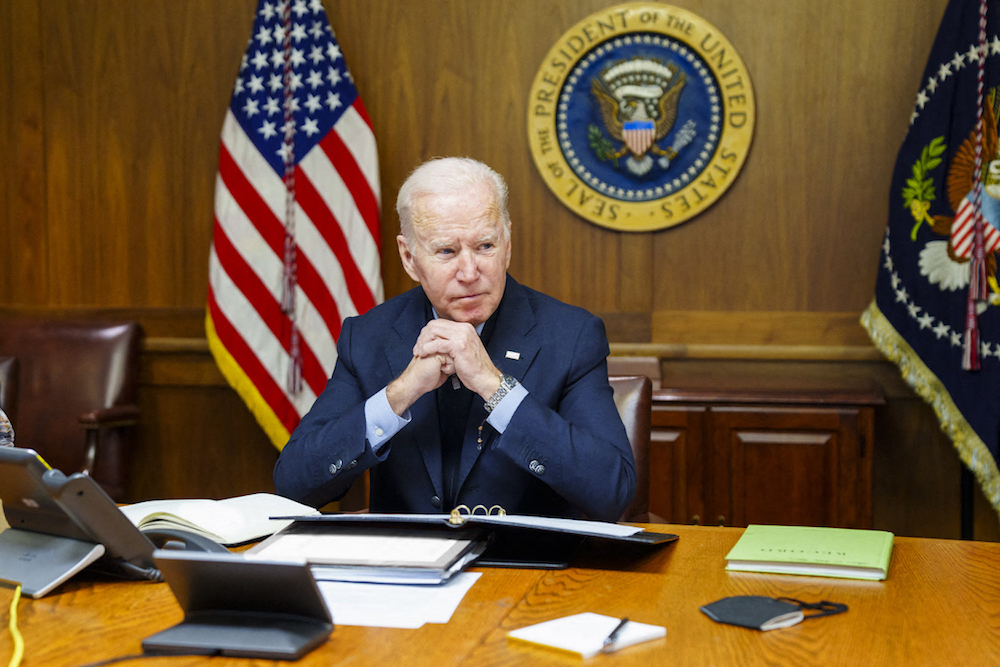
Since President Biden took office in January 2021 and ordered the resumption of negotiations with Iran in April, differences between the US and Israel have come into the open. (AFP)
Elaborating on the nature of what he saw as the Iranian threat, he said: “You have to make a distinction between Iran’s terror-making capacities and nuclear capacities. There are two different things. The most dangerous thing by far — even though the terrorist organizations, their proxies are dangerous — is that Iran will develop an arsenal of nuclear weapons and the means to deliver them to various targets, including our countries.”
Looking to the future, Netanyahu said that there was “a good chance” he would become Israel’s next prime minister again. “I will return to the policy of actively blocking Iran’s nuclear weapons program,” he said.
“Everywhere I go, I will speak and say this is something that Israel is doing certainly for itself, but it is also something that we are doing for all of humanity, for all the peace-loving nations in the world, because you have a radical ayatollah regime that threatens all of us, is something that none of us can allow.
“That has to be stopped and I will do whatever is necessary. I cannot (disclose) what it is that we could do, and we would do, when the need arises. And unfortunately, the need is approaching. All of us.”














